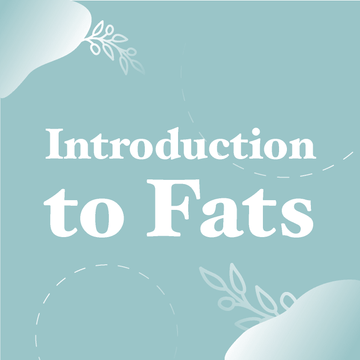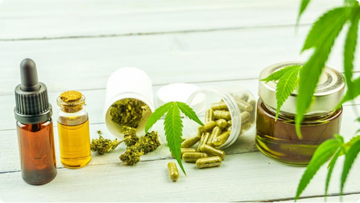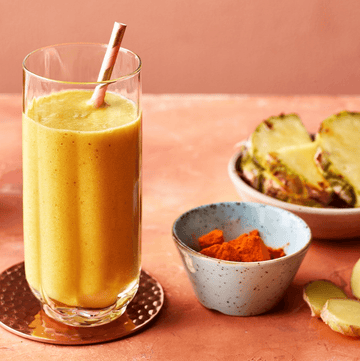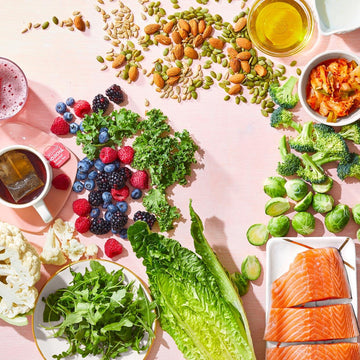A common belief held by many is that fats are “bad/dangerous” for us. In the past, we were told that dietary fat deposits onto arteries, constricts blood vessels, and causes health problems such as heart disease, heart attacks, and obesity.
As more information becomes available, we are learning that this blanket concept around fats is over-simplified and flawed. We know many fats are essential for our body and without them, we cannot achieve and maintain our health.
The question becomes, “what fat should we eat and how much to attain optimal health?”
Too often, people will attempt one (or multiple) ‘fad’ diets that reduce the amount of fat they consume. This typically translates into high-carbohydrate and high-calorie diets promoting insulin malfunctions resulting in obesity. As well, when you reduce the fat and carbohydrate intake, now under-consuming total energy, your body goes into starvation mode. This leads to an equal risk of weight issues and in severe cases of muscle wasting and organ complications. Dietary fat is attributed to promoting a sense of satiety and satisfaction from a meal. Without sufficient amounts of fat in each meal, people tend to feel unsatisfied and will eat more to fill the void.

How fats are metabolized in a nutshell. Your pancreas makes the enzyme lipase. While eating, lipase is released and helps your intestines break down fat into lipid molecules. All of our cell membranes are composed of lipids so it is no wonder why we both LOVE and need fat (the right kind of course). Like carbohydrates (glucose), fats are a ready source of energy.Unlike carbohydrates, fats play many other important roles in the body. Your body needs a certain amount of fat cells. Fat acts as cushioning or protection of our organs against injury. Fat also serves as insulation, preventing loss of heat in the body. Fats are also critical building blocks for important hormones and hormone-like substances such as eicosanoids and cytokines (immune system). Fat is critical for our mental and emotional health as well.

Not to mention, fat is flavour! When you remove fat from cooking or from the salad dressings, dairy products, or anything we purchase for that matter, you are removing flavour. You will also be consuming some artificial flavour, salt or sugar, to make that food product taste good and appealing to come back for more. I would much rather see someone choose full-fat sour cream, yogurt, and dairy than anything that is fat-reduces at all. The replacement ingredient will be fat worse than any amount of natural fat you would consume. Plus, the increase in flavour is worth it! Remember, that satisfaction factor of your meal?
Just a cautionary note, air, heat, and light cause oils to oxidize and turn rancid. Rancid oils contribute to artery damage. To prevent destroying the oils you are cooking with, ideally refrain from heating polyunsaturated fats, like olive oil, flaxseed oil, and sesame seed oil. It is safe to cook with grass-fed butter, coconut oil, or avocado oil.
Additionally, your body requires fat to absorb some of our necessary vitamins from the foods we eat. We’ve heard of fat-soluble vitamins. That means, they need fat to be stored or absorbed in the body. If we do not consume fats, we do not have fat available. We become deficient in vital nutrients. Vitamin D, E, K and A are all fat-soluble vitamins.
Quick rundown. Vitamin D is essential for hormone production and function, immune function, our structural (bone) health, and neurological (mental) functions. Vitamin E is critical for skin health, cellular health, vision, reproduction, blood and brain health. It is also a powerful antioxidant. Vitamin A is vital for vision, overall growth, cell division, reproduction, and immunity. Finally, vitamin K is responsible for normal blood clotting.

What are good fats?
Omega 3 fats are essential for flexible cellular health as well as reserving some conditions such as insulin resistance, high cholesterol, high triglycerides, and high blood pressure. Omega 3 ingestion will also reduce platelet aggregation (tendency to form blood clots) which will help in reducing one's risk of conditions such as heart attack and stroke! Some of the greatest food sources are cold-water fish, salmon, trout, mackerel, and herring. Not a fish lover? Try flaxseed oil (dressing alternative), walnuts, free-range animal products, or game meats. Include as many vegetables as you can, especially the dark-green, leafy ones like mixed greens, arugula, collards, mustard greens, and Swiss chard. Olives are a great way to sneak good quality fats into any meal, either as a topping to a salad or complimentary to your dish. A few other oils to enjoy are grass-fed butter, coconut oil, avocado oil, flaxseed oil, ghee, and other nut and seed oils.

Cold-pressed and unrefined olive oil is also rich in omega 9 monounsaturated fatty acids. (Unrefined oils are filtered only lightly to remove large particles). Omega 9 will help to increase levels of good HDL cholesterol and inhibit the oxidation of bad LDL cholesterol, thereby supporting your heart and artery health.
Additionally, you can always reach for a good quality supplement as a source of quality fats!
What are bad fats?
It is best to avoid vegetable oils because of how much manufacturing and processing goes into the product. Options such as corn, soybean, safflower, sunflower, cottonseed are so high in omega-6 (pro-inflammatory) fatty acids. We need very little of this. In the Westernized ways of eating, we could be getting as much as 20 — 30 times more than we need, resulting in health complications such as insulin resistance and obesity.
Another one we know pretty well to avoid is trans-fats. Found in margarine, deep-fried foods, and anything containing hydrogenated or partially-hydrogenated oils. With this in mind: always read the labels! Trans-fats promote insulin resistance along with a wide variety of health issues. These fats act like troublemakers in the body, crowding out the good fats and displacing them, causing rigid, inflexible cells and tissues in the body. Remember, everything in our body from our brain to our skin is made of a lipid by-layer of fat cells. So what you eat, matters right to the cellular level.

What if you have had your gallbladder removed?
Our pancreatic lipases and bile salts together break down triglycerides into free fatty acids. These fatty acids can be transported across the intestinal membrane. A few steps later, these molecules are in circulation, either to the liver or are stored in fat cells (adipocytes) found throughout the body. The gallbladder is the storage location for the bile salts. Once removed, bile becomes much less concentrated and drains continuously into the intestines, where it can have a laxative effect. Considering it is an acid, it can also irritate the intestinal lining. Now when food is consumed, you do not receive the flooding of bile salts to aid in fat digestion, which will cause the body to become inefficient at the fat breakdown, as well as deficient in the fat-soluble vitamins and fat-related hormones, enzymes, and benefits. It is important then, to consider taking a bile salt or ox bile-containing digestive enzyme at each meal to support your fat digestion and prevent adverse effects from lack of breakdown and absorption.
Fats (the right ones) are vital for our health. So please don’t fear them! Embrace them.
Stay tuned for so much more!!! Knowledge is Power, and Health is Wealth. Equipped with both, there are no limits to your body’s optimization and overall success.
Fat & Stress, Hormone Health, and Brain and Mental Health as well, any fat-related questions or concerns you may have, let me know!
Cara Janzen, H. BSc. RHN is an AURA Community member with a belief to help make you rich — nutritionally! As a Registered Holistic Nutritionist, she is equipped with a B.Sc. and have a background in Biological Sciences and Psychology.







